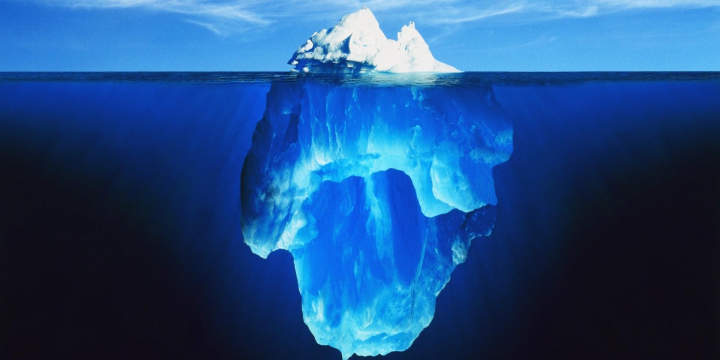Wonders of the mind: Unblocking hunches - knowing without knowing
Do you ever get the feeling that you know something but you don’t how? Have you ever wondered about those times you came to a conclusion and ended up with a decision without knowing why? It turns out that sometimes, we know things even before we know it.
There are times when you make decisions based on a certain feeling of it being right without fully knowing why, and it usually turns out correct. The mind is a powerful tool and the exact potential power it holds is a mystery. What goes on our minds cannot be replicated in a laboratory but we attempt to understand it to be able to fully use our capabilities.
Sometimes, our gut tells us that we know something but we are hesitant to trust our instincts because we cannot explain why we came to that decision. We do not believe that we can do something because we cannot expound how we know what we know.

image taken from imageformationcounseling.org
Adaptive unconscious - intuitive thinking - hunches
Let us look a little below our consciousness to get an idea of the paradox of knowing without knowing. Underneath it is our adaptive unconscious –where quick and automatic processing happens. This fast way of processing is called intuitive thinking or what is more commonly known as intuition. Most times, this takes the form of hunches. We get that feeling that we know what to do in a certain situation without fully being aware that we know it, and we act on these feeling. Our adaptive unconscious peeks in times of need and employs intuition to help us. These are the moments where time is not a luxury and we need to make snap decisions in a moment’s notice.
Using snap judgments under pressure
In martial arts and fast paced sports, when an athlete has to spar or play, he/she has to evaluate a lot of information in order to gauge the situation and the opponent’s abilities (strengths and weaknesses), and come up with a strategy. In times when techniques and strategies are not working, adjustments have to be made to have a more efficient and effective game plan. A series of judgments and decisions are done in mere seconds and under pressure. Spending too much time thinking and evaluating might cost the fight or game. This is when snap judgments kick in and when intuitive thinking serves best.
Contrary to the belief that good decisions only come from deliberate, time consuming, well thought of procedure, our snap judgments are actually of the same value with our conscious decisions. We have to learn to trust them, especially in situations where we are under great stress or pressure and we literally have a blink of an eye to make a decision. Deliberate thinking is best used in situations where time is a luxury and you have enough information to weigh each option available to you. In cases where you do not have both, you rely on intuitive thinking to arrive to a decision.

Credits: Tanya Shatseva via Phys.org. source
Balance
More importantly, to make good quality decisions, you have to learn to balance both conscious and intuitive thinking; both deliberate and snap decisions. Recognize in what situations you have to use either type of thinking and to what degree. You can’t just rely on your intuition and make snap judgments in all situations you’re under duress, all the time. You don’t also have to exhaust yourself from deliberately thinking about the simplest decisions, like whether you like an acquaintance or not. Sometimes, it comes naturally.
It takes training and experience
Spontaneity does not sprout from nothing. It isn’t random. To make spontaneous decisions, you have to have training and experience as basis. You don’t have to drown yourself with irrelevant information to come up with a good strategy but you have to gather knowledge from prior training and past experience to guide you to have a good sense of what to do without having to spend too much time scrutinizing and combing through every detail.
Going back to a fight or game, one cannot make efficient and effective decisions without enough training and prior experience. There are a lot of things to be considered in a fight or in a game. Your capabilities and limitations, the opponent’s abilities, the conditions and rules, awareness of the space and time and so much more. The use of intuitive thinking and snap judgments takes time and practice.
The mind comes with the power of choices and there are a lot of factors to be considered. In making judgments we have to take into consideration both our deliberate and intuitive thinking. We have to train our minds to maximize the potential use of both types of thinking so we can fully utilize our capabilities. Our conscious and snap judgments both comprise the outcome of our actions. Therefore, a balance of both is necessary to make successful decisions.
Perhaps the next time you get an inkling feeling behind your mind, it’d be a good time to listen to it. Don’t block your hunches, don’t discard your intuition. Listen and trust what you know. Your next decision may stir the course of your life.
If you want to know more about adaptive unconscious, you can check out the video below or Timothy Wilson's works.
Another good read is the book about snap judgments:
Blink by Malcolm Gladwell. Click here
Other sources and related topics:
Boost Your Post. Send 0.100 STEEM or SBD and your post url on memo and we will resteem your post on 5000+ followers. check our account to see the follower count.